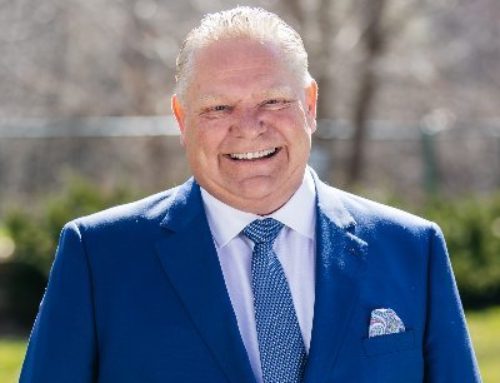| A new bishop has waded into the troubled waters of a Vancouver-area diocese, in the hope of resolving a pastoral emergency so critical it threatens to destroy the Anglican Communion worldwide.
The crisis was precipitated in June 2002 when the Synod of New Westminster voted 62 per cent to approve the blessing of same-sex unions and Bishop Ingham gave his assent. No other Anglican diocese in the world officially blesses gay and lesbian unions. Eight parishes, representing a quarter of the diocese, including a significant portion of the Chinese community, opposed homosexual blessings and formed a coalition called the Anglican Communion in New Westminster. The coalition says it has no desire to leave the Anglican Church of Canada, but can no longer in good conscience obey Bishop Ingham and has appealed for a substitute bishop. In October, the theologically conservative coalition appealed to the Canadian House of Bishops, since such a rite would contravene the House of Bishops’ own 1997 Guidelines on Sexuality. But the 40 bishops could reach no effectual decision, except to suggest further dialogue, which subsequently failed. The former Archbishop of Canterbury, George Carey, has warned that Ingham’s actions are schismatic. Seven West Indian, African and Asian primates have offered to be “flying” or substitute bishops for the eight parishes, but the Yukon bishop offered a more realistic Canadian solution, which they were glad to endorse. “The urgency of this situation is such that foreign primates are now prepared to step in and address the situation directly,” said Buckle in a press release on March 3. “It is my conviction that this situation should be addressed by the Canadian church, and that we need to respond in a practical and meaningful way to the cries of those who no longer feel protected and supported in the very beliefs the church has been built on.” The Yukon bishop continued, “I remain convinced that there can be a solution within the Anglican Church of Canada, and that it is not necessary for bishops outside the country to do for us what we are capable of doing for ourselves.” Ingham rejected Buckle’s offer, calling it an “ecclesiastical offence.” “I must inform you that both the canons and the ancient tradition of the church leave me no room but to inhibit you from the exercise of any ministry within the geographical boundaries of the Diocese of New Westminster.” If Buckle did not abide by this “inhibition,” Ingham said he would pursue disciplinary action against his fellow bishop. Ingham also warned that any New Westminster clergy, churchwardens or parish trustees who availed themselves of Buckle’s pastoral care, would be prosecuted. Clergy could have their licences revoked. He further warned his fellow Canadian bishops not to interfere in his diocese’s “internal matters,” but one spoke out immediately. On Ash Wednesday, Anthony Burton, Bishop of Saskachewan, wrote to his own clergy, “It is difficult in the circumstances not to feel a debt of gratitude to Bishop Buckle. He is a demonstrably holy and peaceable man, an outstanding pastor with no thirst for political intrigue. He has led an exceptionally sacrificial life, is highly disciplined in prayer and deeply steeped in the Scriptures.” Burton wrote that it was Buckle’s desire to keep these parishes in the Anglican Church of Canada that caused him to act. He also observed that a bishop is to be “an icon of Christ, who leads his people with the bonds of mutual love.” The Saskachewan bishop noted that prosecuting Buckle would only further damage the Anglican Church of Canada and the worldwide Communion of 70 million Anglicans. “As to the canons, Bishop Ingham only need grant Bishop Buckle permission and delegate authority to Bishop Buckle in relation to these parishes,” wrote Burton, noting that Buckle has twice asked for this permission. Burton, an Oxford graduate, observed that, “Our canons on discipline and licensing are designed to deal with individual cases and problems of a local and particular kind. They are wholly unsuited, and surely were never intended, for use in dealing with a conflict over a serious theological question involving numerous clergy and parishes.” Burton concluded that Ingham’s “threats show only a desire to enforce by the use of brute power a particular point of view … It is precisely the course threatened by Bishop Ingham which will do the most to undermine the authority of the historic episcopate. Church law is to serve and maintain apostolic faith and order. It should not be used to undermine both.” On the same day, March 5, Ingham told ABC News, “We are going to proceed (with the blessing of same-sex unions). I’ve already given my consent.” As of press time, the Primate of the Anglican Church of Canada, Michael Peers, had made no public comment. On March 23, seven of the eight parishes will hold special vestry meetings to vote, by parish, on whether to accept Buckle’s bold offer to cross diocesan boundaries and, in effect, be their bishop, confirming their laity, ordaining their clergy and giving them all the pastoral care they long for, even in the face of threatened prosecution. |

 Terrence Buckle, Anglican bishop of the Yukon, offered “alternative episcopal oversight” to eight orthodox parishes in New Westminster that oppose the blessing of same-sex unions. But Michael Ingham, the official bishop of New Westminster and a supporter of rites blessing homosexual “marriages,” threatened his Yukon colleague with legal action.
Terrence Buckle, Anglican bishop of the Yukon, offered “alternative episcopal oversight” to eight orthodox parishes in New Westminster that oppose the blessing of same-sex unions. But Michael Ingham, the official bishop of New Westminster and a supporter of rites blessing homosexual “marriages,” threatened his Yukon colleague with legal action.


